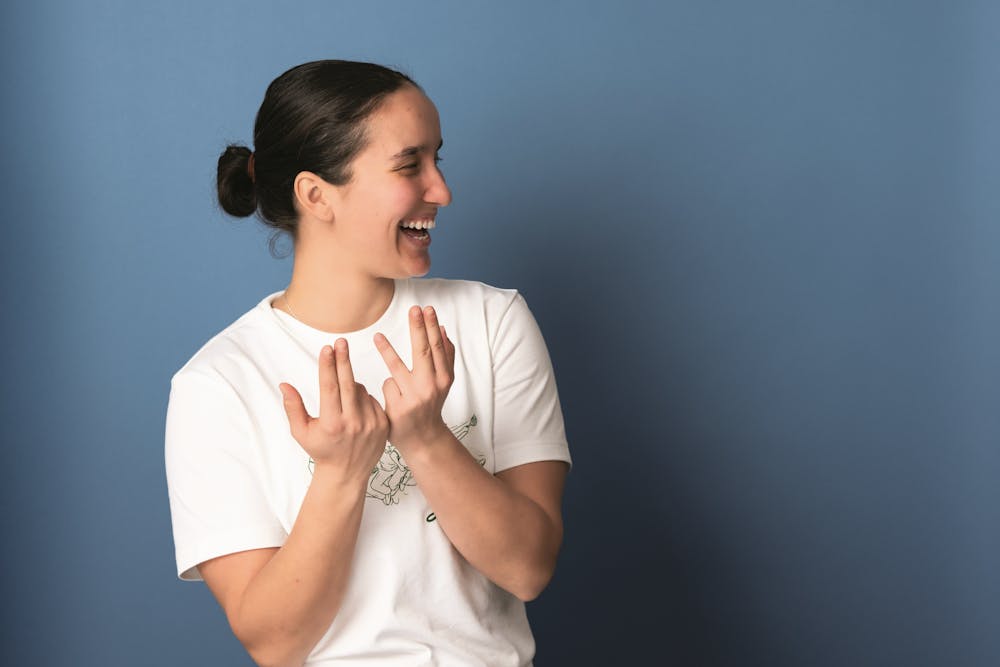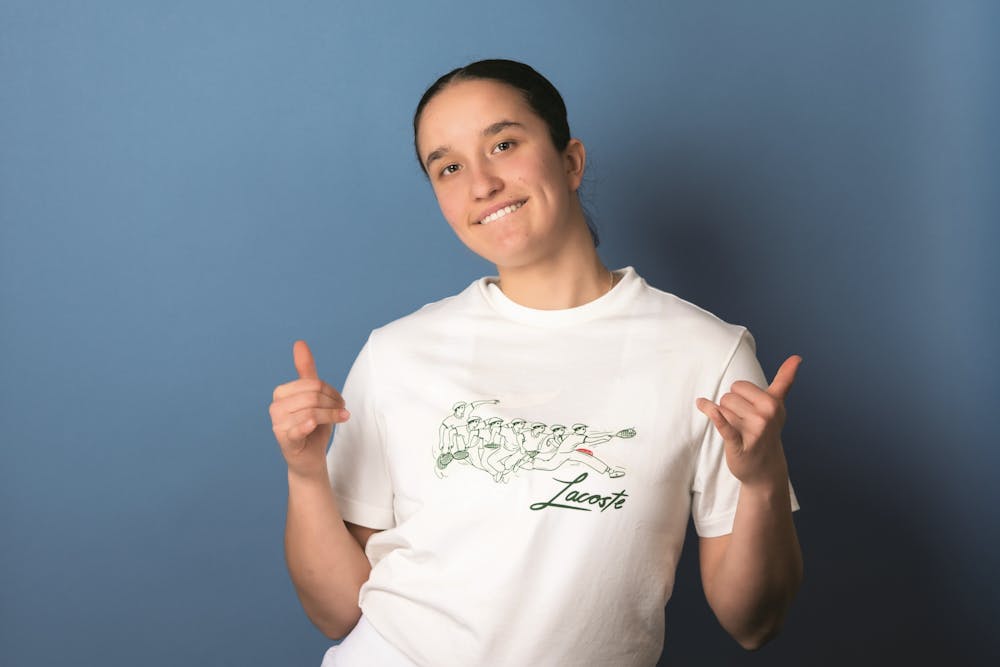After winning the junior wheelchair tennis title at Roland-Garros in 2024, 19-year-old Ksénia Chasteau will enter the main draw at a Grand Slam tournament this year for the first time. It’s another milestone in a career in which she has overcome many obstacles, forging her mental strength.
Ksénia Chasteau holds the future in her hands
Focus on up-and-coming French wheelchair tennis player Ksénia Chasteau
 ©Marine Andrieux / FFT
©Marine Andrieux / FFTShe became a household name last year after emphatically winning the first edition of the junior wheelchair tournament against the USA's Maylee Phelps. It was a very successful year for the French player, who was also crowned champion of France – this time in the main draw – and reached the last 16 in the Paris Paralympics, challenging world No. 2 and eventual gold medallist, Yui Kamiji, over a set, all while passing her baccalaureate with flying colours.
Now aged 19, Ksénia, who learned her trade at Tennis Club La Fourragère ASPTT and has risen to world No.11, is focused on succeeding on the main tour. “The juniors are behind me now. I’m fully focused on ITF tournaments and I hope to compete in the next three Grand Slams, as I had to miss the Australian Open because of an operation that will allow me to walk properly with a prosthetic, because I was always a bit wonky (smiles).” The young woman aims to do well in the early rounds and reach the quarters or semi-finals [the draws in major tournaments comprise 16 participants].
“It’s achievable, I know how well most of the Top 10 play, and I’ve always been able to hold my own against them. I hope to use that knowledge to improve my game,” explained Chasteau, who is once again working with Gabriel Tassaro, who used to coach her in her early days.
Chasteau has a good head on her shoulders and has identified a number of areas for improvement, especially after the match she lost to Kamiji at the Paralympics. “I need to work on my mental strength, continue to trust in my strategy, even when I’m behind, and the second set showed I need to up my endurance, physically and mentally and better manage my frustration.” She is also aware she really needs to work on getting into points. “I need to up my first serve percentage and improve my returns, as a match can be over in just a few shots.”
 ©Marine Andrieux / FFT
©Marine Andrieux / FFTKsénia Chasteau, la positive attitude
Never give up
Obviously, Roland-Garros ranks among her main targets. “It’s a showcase for wheelchair tennis. It’s an amazing celebration, I’m looking forward to seeing the stadium packed out after the Games. But I will need to manage my emotions, as there’ll be a lot of expectation on me. In the juniors, that was tough for me to manage, but I did it better during the Paralympics” she said. Chasteau splits her time between Paris and Marseille, training primarily at the French national training centre before enjoying “settling down” in Aix-en-Provence, playing in the PACA league from September onwards so she can train outdoors all year round.
She is a fighter who has had to deal with many challenges in her life. Her story began in Irkutsk in Siberia where she was born, before being adopted with her biological brother by a French family. “They kept my Russian name, which I really appreciate. It’s part of who I am, my identity. I am very grateful to my parents. I don’t speak Russian, but one day I’ll go back there.”
 ©Loïc Wacziak / FFT
©Loïc Wacziak / FFTNot all about tennis
Although her father was a keen rower and diver, and her mother enjoyed playing handball, Ksénia was the one who first opened the door to elite level sport. “I started playing at around 4 or 5 years old at La Rose Tennis Club, then the Cercle Sportif Municipal. The League spotted me pretty early, by my parents and I weren’t really that keen.” Ranked level 6 by the age of just 13 after getting into competitive tennis relatively late, she lost the use of her left leg following a motorbike accident with her father in 2021 at nearly 15 years old.
A year and a half later, Ksénia became the French junior wheelchair tennis champion. Despite her promising career, she wanted to keep up with her education. “It’s not about having a plan B, I would say it’s more about intellectual stimulation, especially as I’m really interested in the mental side of things. And it gives me something to think about other than tennis for two hours a day,” said the first-year psychology student. And when it comes to relaxation, she is “surrounded” by music, listening to Rodrigo y Gabriela and rap artists Nekfeu and Rilès, and would like to learn the guitar. “Like my brother, I follow football and always keep an eye on Marseille, and I don’t know why but I love watching winter sports on TV, especially the biathlon and alpine skiing,” she said with a smile. However, it isn’t on snow but on the Paris clay that we hope to see her shine in 2025.
 ©Marine Andrieux / FFT
©Marine Andrieux / FFT ROLAND-GARROS
18 May - 7 June 2026
ROLAND-GARROS
18 May - 7 June 2026

